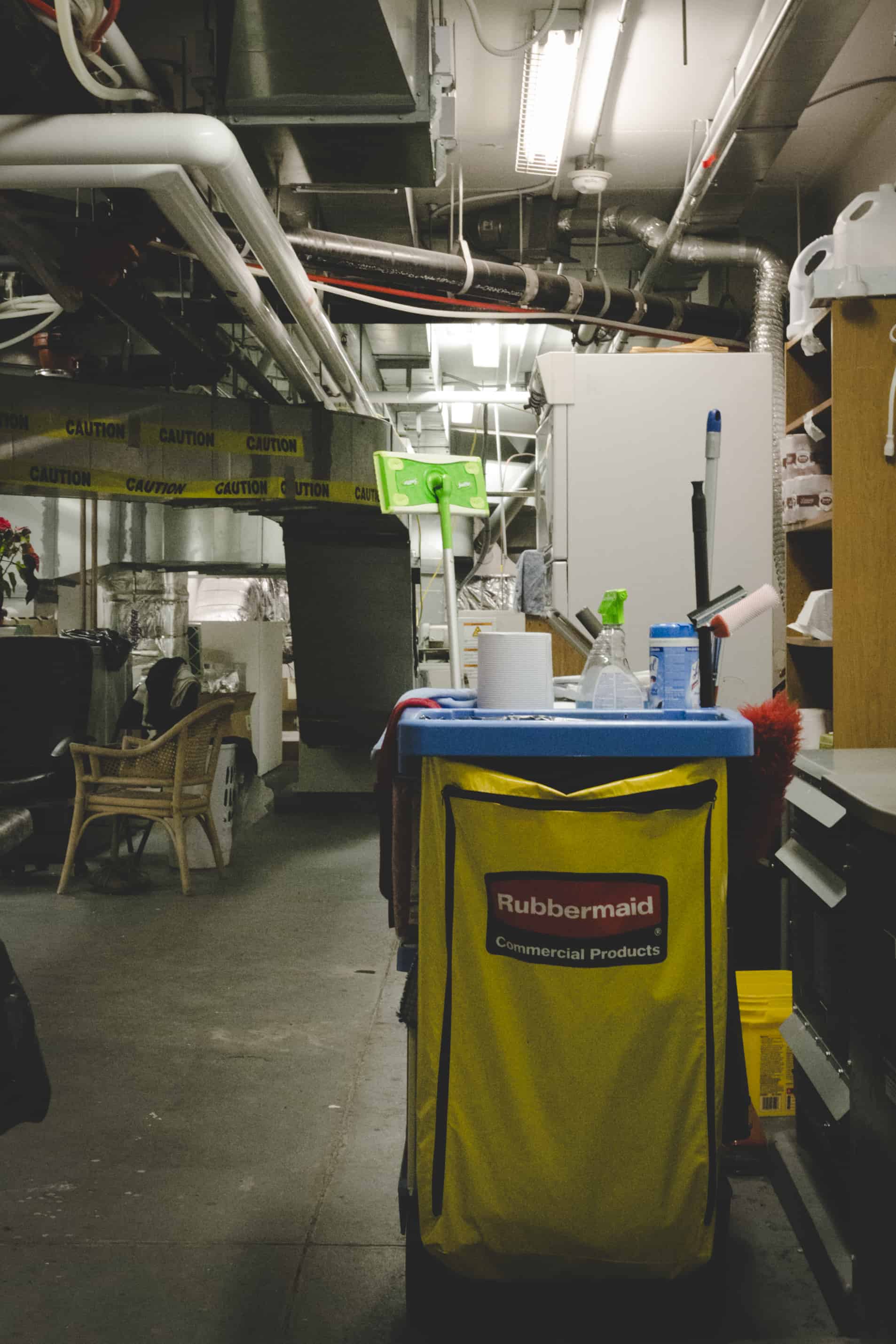The university is continuing to outsource cleaning services on campus with contract workers from Compass Group.
There are 25 buildings on campus that are being cleaned by workers from Compass Group, which is a multinational cleaning and property management company that is also the world’s largest food service company. These buildings have had their cleaning services outsourced gradually, with five buildings added in fall 2015, one in early 2016, and an additional eight in the fall of 2016.
The outsource has been met with criticism from CUPE 3261, the union representing service workers employed by U of T. CUPE 3261 has argued that Compass Group does not pay its workers fair wages, has a wage breakdown that discriminates against women, and that the use of Compass contradicts the university’s commitment to leveraging its position as a key institution to bring about pay equity.
U of T Media Relations Director Althea Blackburn-Evans told The Varsity that new buildings are given priority consideration for outsourcing to Compass, followed by buildings where retirement or resignation of staff leaves a dwindling number of workers. “I want to emphasize that no caretaking staff at the university has lost their jobs, or will lose their jobs, as a result of outsourcing,” she said.
Wages and pay equity
Current hourly wages of CUPE 3261 members are higher than what Compass Group pays its employees. Casual cleaning service workers who are employed by the university, and who are therefore members of CUPE 3261, start at a pay rate of $13.16, which rises to $15.06 after 24 months on the job. Part-time and full-time employees who are employed by the university earn a probationary rate of $18.20 and job rate of $20.21.
Compass employees make $12.35 an hour if they are “light duty” workers and $13.45 if they are “heavy duty” workers. Stephanie Baxter, Director of Communications for Compass Group Canada told The Varsity that “Light Duty entails dusting, light cleaning, emptying waste bins and light vacuuming. Heavy Duty has more physically demanding duties such as removal of garbage bins and requires specialized training for equipment such as power ride-on cleaning equipment, scrubbers, buffers and larger self-propelled machines.”
CUPE 3261 appealed to the UTSU’s Board of Directors on December 6, 2016, to join the call to stop contracting out cleaning services and bring the jobs back in-house.
In the presentation, the union raised a number of concerns. Amongst them was that the distinction between “light duty” and “heavy duty” workers was “typically a way to pay women less money.”
Baxter responded to these concerns, saying that “in 2015 [Compass Group Canada] participated in a Pay Equity Review conducted by the Pay Equity Commission (PEC) to determine if the organization was compliant with the pay equity legislation. To be pay equity compliant it must be proven that the organization is paying equal pay for work of equal value and that female jobs are paid at least the same as male jobs if they are of comparable value. At the end of the review it was deemed that we met the requirements of the PEC and were pay equity compliant.”
Baxter added that women comprise a greater portion of the heavy duty workforce at U of T compared with the overall Compass payroll. “Twenty-seven per cent of our heavy duty workforce is women and at UofT this number stands at 29 per cent,” she said.
Quality of work
Leanne MacMillan, CUPE Servicing Representative, told The Varsity that “CUPE is concerned the use of poorly paid contract employees will lead to increased turnover of employees, violations of health and safety standards, and decreased cleanliness for the labs and classrooms of Canada’s self described “largest and most distinguished” research university.”
Blackburn-Evans says that the outsource is a matter of money. “We receive public funding and we receive student money to deliver towards our core mission, which is teaching and research. We are absolutely duty-bound to use the money that we get very efficiently, and we are facing increasing cost pressure,” she said.
“There is somewhat of a distinction to be made when you’re looking at services like this where it’s a direct expense, where it’s not self-funded in any way. There’s no return on that, so it’s like a direct expense out of pocket from the university’s central budget. Any expense like that, that doesn’t also generate revenue or fund itself in any way, the university is always looking for ways to be efficient with that money,” Blackburn-Evans explained.
In a letter to Scott Mabury, Vice-President University Operations, and the rest of the Planning & Budget Committee of the Board of Governors, CUPE Local 3261 President Allan James said the union is asking Mabury to “‘think hard’ about how to take steps to reduce growing income polarization, social and economic deprivation and give people a chance to succeed.”
Viewing this as a moral aspect of the university’s mission, James says that “The first step should be to end the contract with Compass and return the work of cleaning and caring for the facilities on the St. George campus to employees of the University.”
Blackburn-Evans responded to this criticism of paying lower wages, saying that “CUPE 3261 can argue whatever they like; I am not going to get into that debate. What I’m saying is that the university is duty-bound to use its resources effectively.”
MacMillan disagrees. “The University has lots of money … The issue is priority. At this point, the University Administration does not think it is a priority to continue to provide good paying jobs with benefits to people who keep the St. George campus clean for those who use it,” she said.


